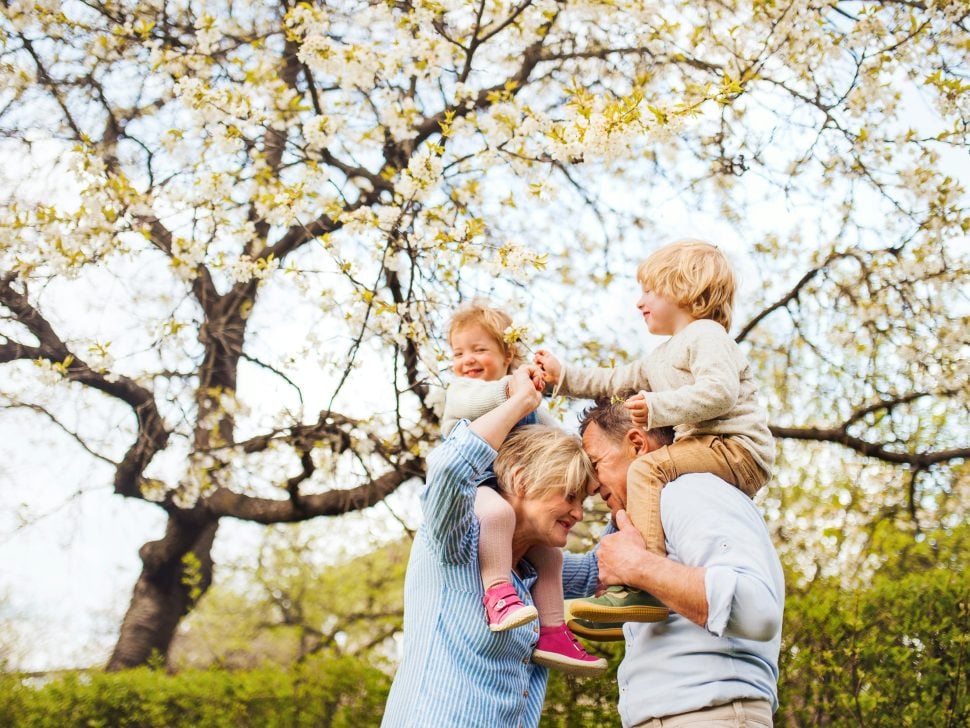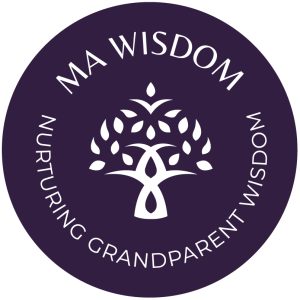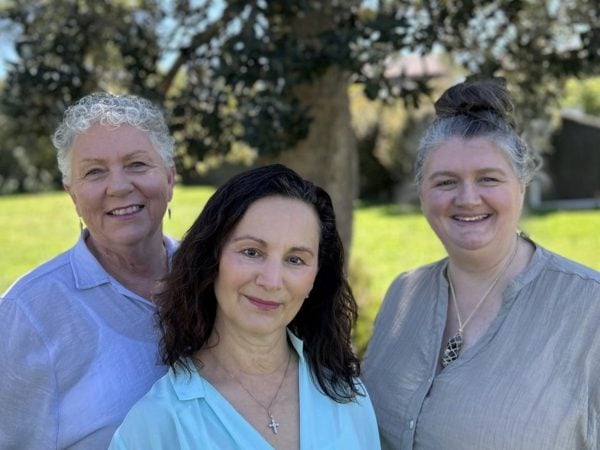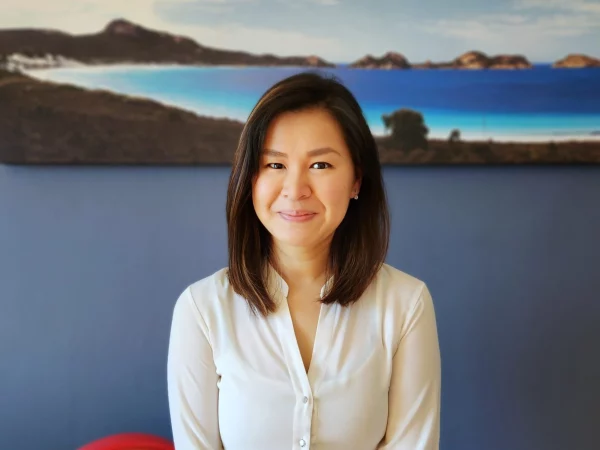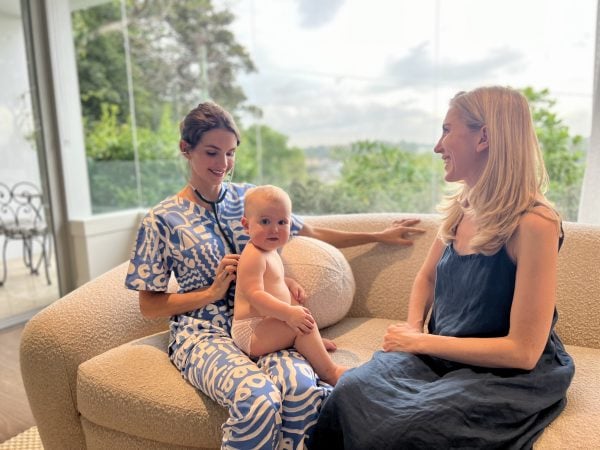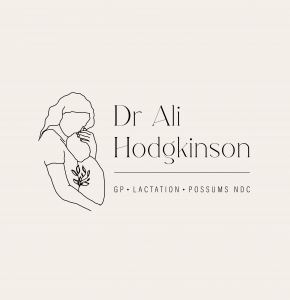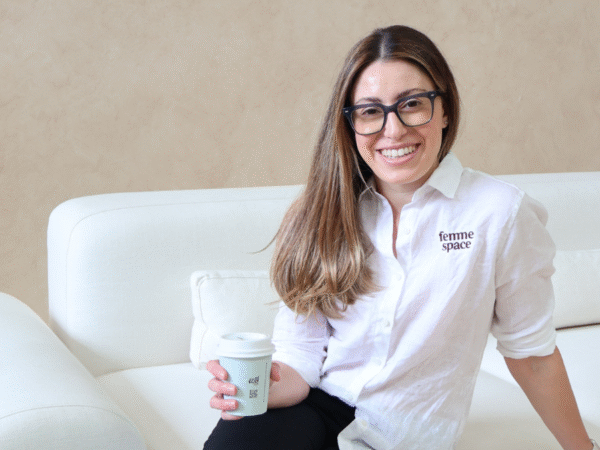Keeping the Village Strong: How Modern Grandparent Workshops Support Families
Becoming a parent doesn’t just change your life; it reshapes the whole family. As new mums navigate sleepless nights, identity shifts, and the steep learning curve of parenthood, their own parents are experiencing a transition too.
That’s where modern grandparent workshops come in. Across Australia, these programs are helping families strengthen connection, understanding, and boundaries so that everyone, parents, grandparents, and babies, can thrive together. We sat down with the wise women and co-founders of Ma Wisdom to find out how their workshops are the next step in rebuilding the modern village, one family at a time.
Let’s start with the heart of your work. What inspired you to create workshops specifically for grandparents, and what gap did you see in the way families are supported during this transition?
As a doula, Gaby saw a gap over a decade ago and when she was telling us about her idea, we all recognised it was still an issue and we were instantly on board. Parents need additional support when they have a newborn, they need their village, but they need the right support. Things have changed in the last 25–30 years since most had their babies and their knowledge needs updating and the word boundary was never spoken of in the past like it is today. Society and culture is changing and grandparents are finding themselves navigating things they haven’t even thought about.
Becoming a grandparent is often described as pure joy, but it’s also a big role shift. How do you see that transition, and why do you think it deserves more attention and guidance?
Grandescence is a big transition and isn’t even really seen as one. For women, it’s often accompanied by peri or menopause and grandparenting isn’t something widely studied, but we hope that is changing. Matrescence is only just coming into the vernacular now and grandescence is well behind that. We are educating grandparents about both: the transition their child is going through and the one they are navigating themselves.
There’s a reason why this transition comes later in life, because we need all of our wisdom gained over our lifetime to navigate it. It’s tricky; it’s a new role, it’s not a parenting re-do, and we have to step away from the parenting and into the supporter realm when it comes to our grandchild, while still being a parent to our children in a different way.
Your workshops are evidence-based and run by yourselves. Can you give some details on what your workshops cover?
We have six modules in our training and start with the transition of grandescence. Having grandparents recognise this as a transition almost gives permission for the times when it’s hard and there are times when it’s very hard.
We discuss self-care and boundaries and how to set healthy ones. Communication and active listening are the crux of all support and are vital in creating a healthy relationship with new parents—with anyone really, but we’re specifically talking about the new family.
We touch on support during pregnancy and birth, rites of passage, and complications before moving on to the reasons why postpartum support is vital and how best to provide it, before updating practical skills in feeding, sleep, and settling. As you can see, we cover a lot.
What are some of the most common challenges or tensions you see arise between new parents and grandparents, and how can small shifts in mindset or communication make a big difference?
Taking change personally and boundaries.
Many take offence when their child says they don’t want to do it like it was done in the past. They’re not saying what we did was wrong, we did what was thought best in our time. It’s not an accusation. Times have changed, knowledge has changed, and we all have to change with it.
Boundaries are a big one. Grandparents aren’t the parent anymore, and the decisions aren’t theirs. In both of these cases the grandparents are often acting out of love and sometimes even protection, saving them from a scenario they can see unfolding, but parenting is about making mistakes and repairing them. They don’t need to be told what to do; they just need support while they work it out for themselves.
When we’re vulnerable and feeling like we’re failing as a parent, words matter and they can hurt. One of our best pieces of advice is: don’t give advice. Sometimes the best thing to say is nothing.
You talk about helping grandparents become the best part of their son or daughter’s village. What does that actually look like in practice? What does being “the best kind of support” mean?
It’s a combination of all of the things, being open to understanding that there’s a shift in their dynamic with their child as well as in society.
There’s emotional support and practical support. Being a good listener is a huge part of emotional support. We have two ears and only one mouth for a reason. We don’t need to fix anything, just be there.
Being flexible is also important. New parents are on a huge learning curve, they’re wading through their own major transition while trying to cope with the 24/7 demands of the tiny human they are now responsible for. They may want one thing before baby arrives and once here, want exactly the opposite. Don’t take offence or say ‘I told you so’, it’s all part of the process.
Practical support can be easier to navigate when skills and knowledge are up to date. There’s more than one way to do something and many things have changed, so being open to the new will help you help. Supporting new parents get sleep and naps is probably the number one in practical support and will have the biggest impact.
Many new grandparents want to help but aren’t sure how, or they unintentionally overstep. How do your workshops help them navigate those sensitive moments with compassion and understanding?
We talk about empathy vs sympathy. There is a big difference between them and empathy is the cornerstone of compassion.
Setting boundaries with the new parents before baby is born helps everyone know where the line is. If you don’t have a line, how will you know when you’re overstepping?
New relationships and dynamics are about building trust, and communication is a large part of that. So is acknowledging that there will be overstepping, both parents and grandparents need to acknowledge this. We’re human and we will make mistakes. Being able to own it, apologise for the way it made the other feel, and making a concerted effort not to do it again is how trust is built.
The language we use around parenting has changed so much in recent decades. How do you help grandparents update their understanding while still feeling valued and confident in the wisdom they bring?
Letting grandparents know that they do have wisdom and it’s all about the delivery, is the key. As Maya Angelou said, “When we know better, we do better.”
Often just alerting grandparents to the change is enough, but we also give them skills to practise. All learning takes practice, and the more we do it, the more familiar it feels and the better we get at it.
What kinds of “lightbulb moments” do participants often have during your workshops, those beautiful realisations that shift everything for a family dynamic?
Sometimes it’s not a lightbulb moment but a slow burn of realisation. Matrescence wasn’t discussed in their day, nor was postnatal depletion (well, not in the Western world, anyway). Informing them about these topics can help many grandparents understand their own journey differently.
Debriefing their own birth stories is something many don’t believe is important, but our views are based on our experiences, and there are often hidden triggers to behaviours and opinions. Knowing where they stem from, and not acting on them, or acting on them consciously, comes from understanding their provenance and why we think that way.
These would make an excellent gift for any grandparent. For parents who might be reading this, why is investing in their own parents’ education and support so beneficial for everyone in the family unit, including the baby?
It shows that you want them to be part of their grandchild’s life, but you also want them to be up to date with their skills and knowledge. Many parents don’t realise that grandparents are going through a transition of their own.
They don’t have the capacity to manage that as well as a new baby, but gifting them a workshop will help the grandparents acknowledge their own transition, learn the things that will make it easier for them as new parents, and accomplish all the updating at the same time.
It’s a win-win and sets the family up to be a more cohesive unit well into the future.
It feels like no one is really talking about this, the emotional and relational side of becoming a grandparent. Why do you think this topic has been overlooked for so long?
We don’t live in villages anymore and, in the West, we aren’t the best at acknowledging our elders. Our focus is usually on the baby.
It’s only in recent years that we’ve begun to acknowledge that the focus should be on the parents, that well and happy parents make for well-adjusted children, and grandparents are even further behind that line.
When we help grandparents through their transition, improve their knowledge, and update their skills, they become better support for the parents. When parents feel well supported, they are better parents, and all of this benefits the child.
Strengthening positive intergenerational ties will impact families for generations to come.
Finally, what do you hope every grandparent walks away from your workshop feeling, and how do you see this work shaping the future of the modern village?
We want them to feel confident, knowledgeable, and seen. They have a lot to contribute and grandparents can have such an impact on the whole family.
As mentioned above: Strengthening positive intergenerational ties will impact families for generations to come. This is their legacy.
Want to learn more?
You can find out more about the in-person Sydney-based workshops here
You can find out more about the online courses here
You can find out more about Ma Wisdom here
FAQ: Grandparent Workshops & Modern Family Support
What is a modern grandparent workshop?
Who should attend a grandparent workshop?
Where can I find grandparent workshops in Australia?
What are the main benefits of attending a workshop?
You may also be interested in...
Learn about the support you didn't know you needed.
We have cherry picked the most useful resources for your fourth trimester so that you don't have to waste precious hours searching.
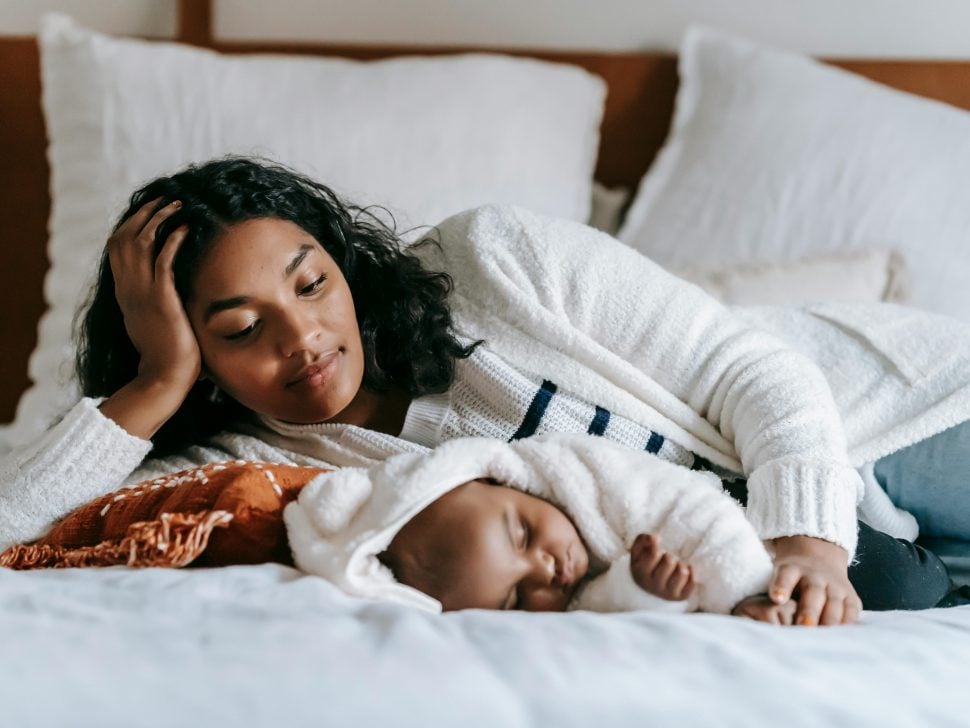
Article - Julia Jones (Newborn Mothers)
What is a Doula?
Today, a doula is typically someone who acts as a hub of support, referrals and resources for a person during a major life transition, usually related to birth. Doulas have a holistic approach that considers both mental and physical well-being. Services vary significantly but can include emotional reassurance, information based on scientific evidence, and comfort techniques like massage and nourishing food. The role is not medical, and doulas cannot treat, diagnose or cure any disease.
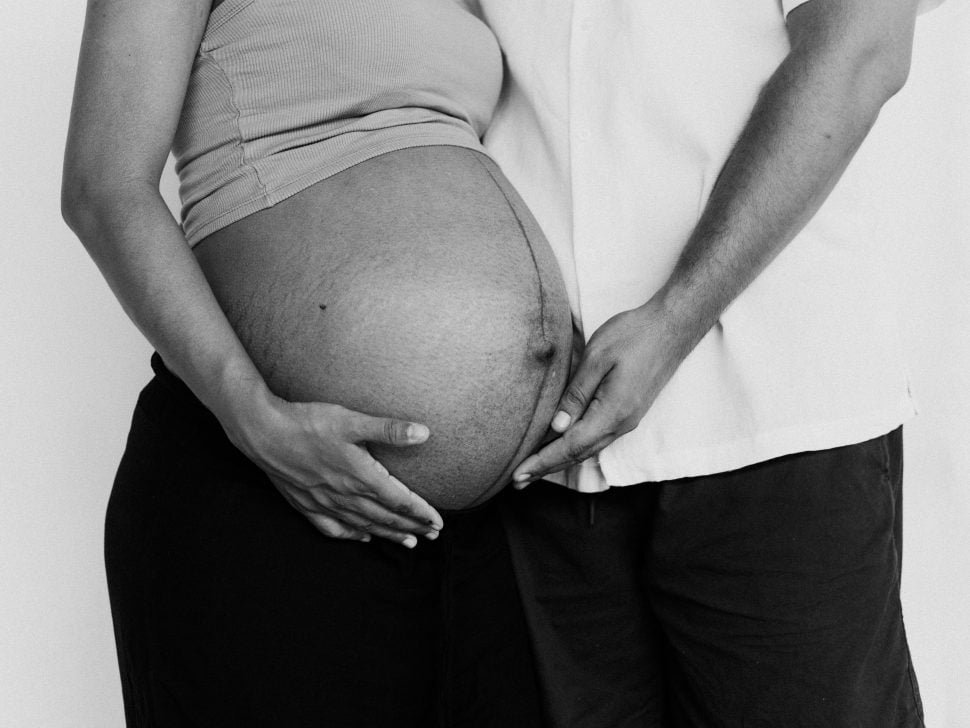
Article - Louise Barton + Elisha Wildblood (Not Another Onesie)
How to Use Not Another Onesie: Find the Best Pregnancy, Birth & Postpartum Support in Australia
At Not Another Onesie, we’ve created a beautiful, easy-to-use space to help you access the best pregnancy and postpartum support in Australia, from doulas and physios to lactation consultants, sleep guides, and emotional wellbeing tools. This is your step-by-step guide to using our site, finding your village, and getting the kind of care that truly supports you.
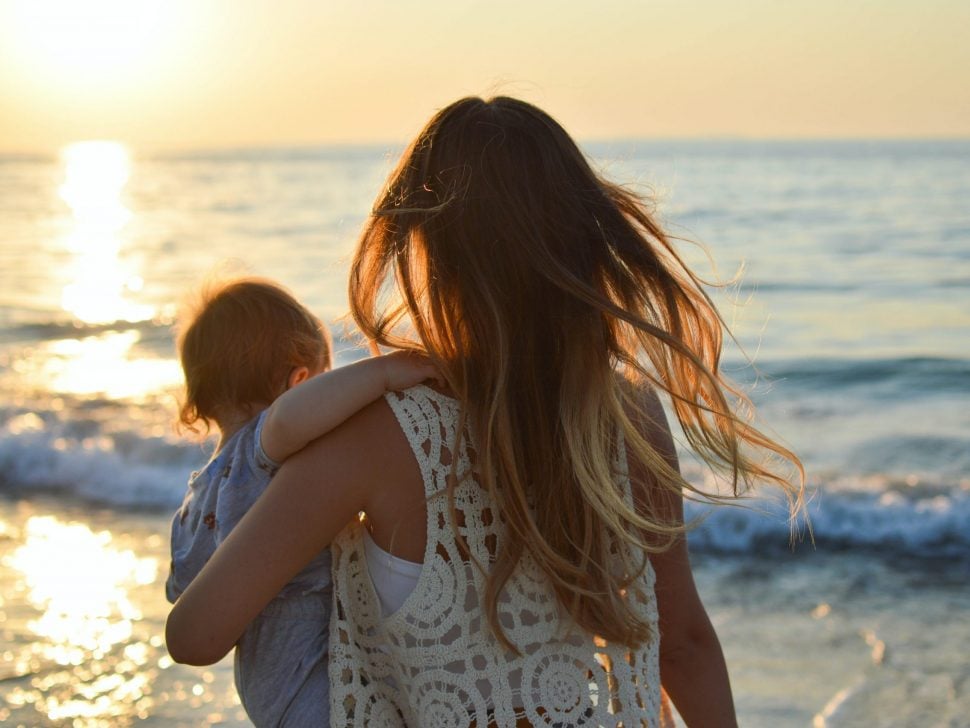
Article - Elise Clement (Elise Clement Psychotherapy & Coaching)
Tips to avoid maternal burnout
Perfectionism is not a healthy habit. Even less so when it comes to motherhood, unless you’re keen to rub shoulders with overwhelm, resentment, rage and the feeling of never being satisfied, which can eventually lead to maternal burnout.
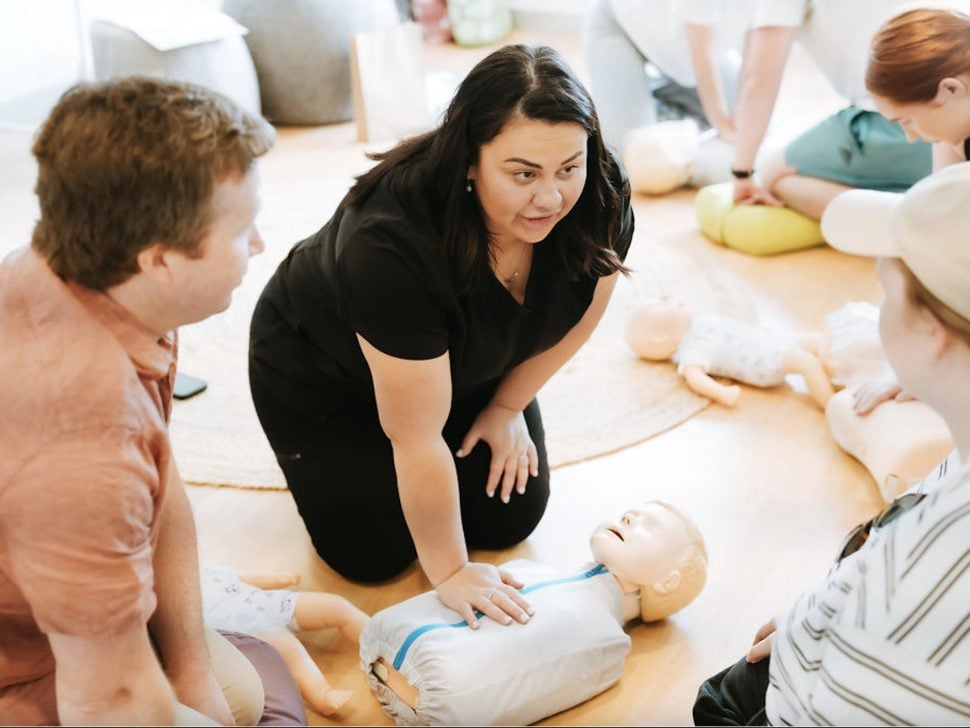
Article - Ilana Lawrence (The Sick Sense)
Baby & Child First Aid: Why Every Parent Needs These Life-Saving Skills
Becoming a parent comes with joy, wonder and a lot of worry. From fevers to falls, choking hazards to unexpected rashes, every parent has those moments of panic: Is this serious? Should I call for help? That’s where baby and child first aid training can be life-changing. We sat down with Ilana Lawrence, the founder of The Sick Sense, paediatric nurse and infant first aid trainer, to talk about why first aid education matters, what parents will learn, and how these skills can empower families to act with confidence.

Article - Louise Barton + Elisha Wildblood (Not Another Onesie)
End-of-Year Reflection Guide for Mums (Free Journal Prompts + Playlist)
The end of the year can feel like a whirlwind, especially for pregnant and postpartum mothers. While the world speeds up with celebrations, to-do lists, family dynamics, and pressure to “make it magical,” many mums quietly feel stretched thin, overwhelmed, or emotionally pulled in a dozen directions. If this resonates, you’re not alone. This gentle guide is here to help you slow down, take a breath, and soften into a kinder ending. A moment to honour the year you lived, the glimmers that kept you going, and the version of you that is emerging.

